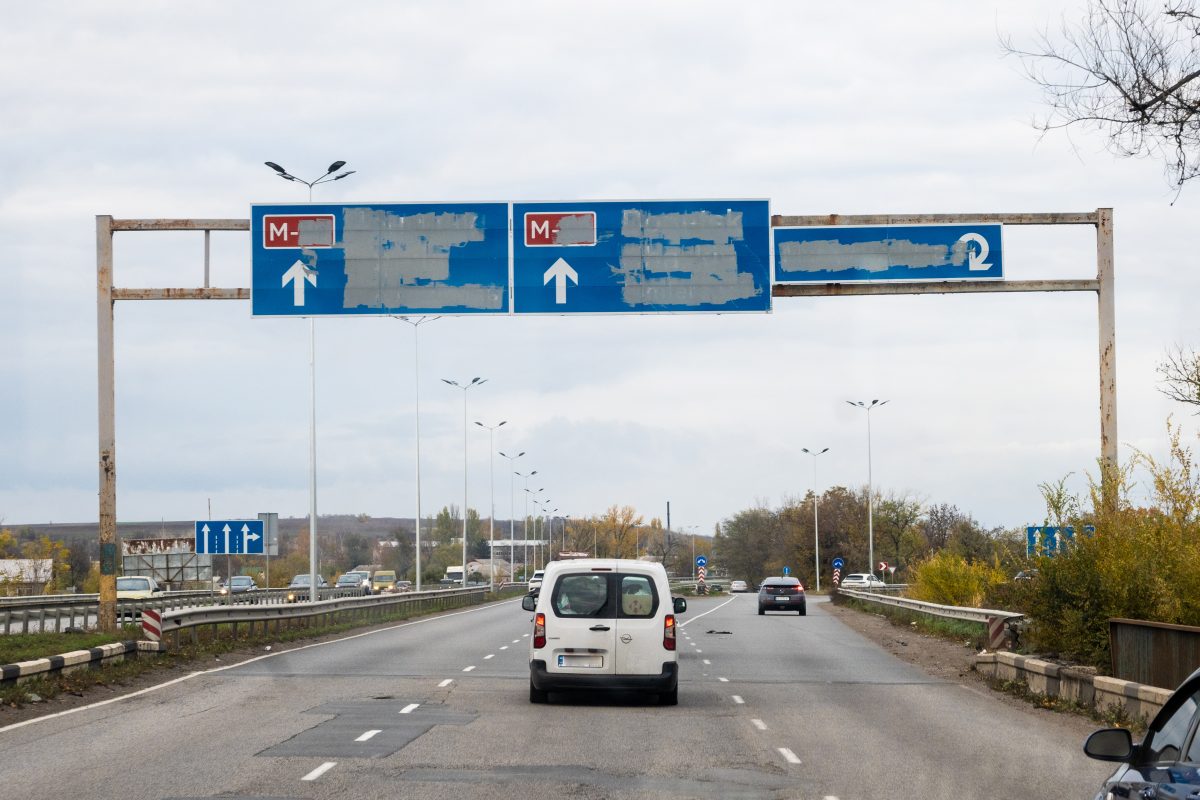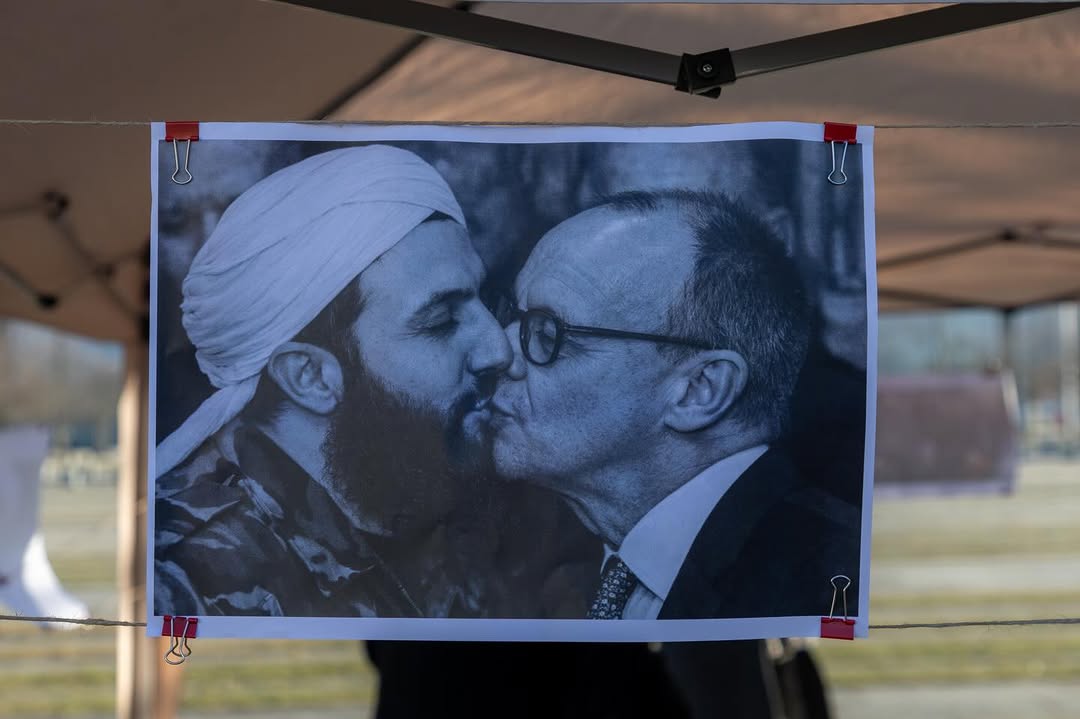Interview with Kevin Squires (National Coordinator, Irish Palestinian Solidarity Campaign – IPSC)
Hello Kevin, could you start by briefly introducing yourself?
My name is Kevin Squires, and I’m the National Coordinator of the Ireland-Palestine Solidarity Campaign, Ireland’s oldest and largest Palestine solidarity organisation who will be marking 20 years of existence later this year. On the European level, we work closely with the more than 40 groups that make up the European Coordination of Committees and Associations for Palestine (ECCP), including great colleagues in Germany and I’d like to pay respect to them in particular for keeping up the struggle for Palestinian freedom in very difficult political circumstances.
What have developments in Israel and Palestine got to do with us in Europe?
Well, first there’s the fact that the legacy of European imperialism and colonialism is responsible for much of the political quagmire that the Middle East has been engulfed in since the First World War, and I believe that there should be a general interest in what happens in the region amongst European citizens.
But speaking specifically to the Palestine-Israel region, we must recognise that today Israel is virtually – in all but name – an EU member state. The EU is Israel’s biggest trading partner and Israel avails of tariff-free trading privileges with the bloc. Israeli entities receive EU technical and scientific research funding, along with funding to implement institutional twinning. Israel is even a trusted partner in data sharing programs, and its military has just been given the green light to take part in joint operations with PESCO, effectively the EU Army-in-waiting. Israel’s link with the EU is perhaps best summed up in the words of the 2005 ‘EU-Israel Action Plan’ which outlines the development of “an increasingly close relationship, going beyond co-operation, to involve a significant measure of economic integration and a deepening of political co-operation.”
Of course, all of this is occurring despite Israel’s atrocious human rights record and flagrant disregard for International Law. Indeed, Israel is in constant violation of the EU-Israel Association Agreement (which grants it privileged access to EU markets), Article II of which states that ongoing relations “shall be based on respect for human rights and democratic principles, which … constitutes an essential element of this Agreement”.
Palestinians have suffered decades of oppression, dispossession, occupation, colonisation, mass incarceration and war crimes at the hands of the Israeli state – yet rather than act to help the victims of these injustices, the EU engages in an ever closer embrace with the perpetrator. EU Member States will not act without pressure from below – and that is why everyday people, the ordinary citizenry of Europe, should not only care, but take action to help end the oppression of Palestinians and the EU’s complicity in it.
The European Union has repeatedly condemned Israel’s policy of settling its civilians in the West Bank and Golan Heights. Is this enough?
The evidence tells us it is not. Israel has been building these illegal settlements for five decades, and condemnation has evidently not stopped them. In fact the pace of settlement building has quickened as Israel has developed ever deeper ties to the EU since the 1990s. These settlements are not merely ideological, they have practical economic benefit for Israel – and by continuing to allow trade with them the EU is not only economically and politically bolstering them, it is in violation of its own duty to non-recognition and non-assistance to serious violations of international law.
If the EU is serious about its commitment to the rule of law then it must act to ban trade with Israel’s illegal settlements. If that does not have the desired effect, then it should look at implementing other lawful sanctions to ensure Israel complies with international law. In fact it should be doing this anyway, especially looking at an arms embargo. Israel acts with impunity because it has never faced serious sanction for decades of violations – to ensure compliance with international legal norms, that impunity must end.
Tell us about the ROXANNE Project
ROXANNE is an acronym that stands for ‘Real time network, text, and speaker analytics for combating organized crime’, and is an EU-funded framework project that purports to research how advancements in technology “can help track and uncover criminals and terrorists” using “voice recognition, language and video technologies” using artificial intelligence.
Due to run until August 2022, ROXANNE is coordinated by the Idiap Research Institute in Switzerland. There are 24 other participants including private companies, universities, and police forces and security ministries from over a dozen different countries, including INTERPOL. Of great concern to human rights activists is the inclusion of the Israeli Ministry of Public Security.
This is the Ministry responsible for both the Israel National Police, including the notorious Border Police, and the Israel Prison Service. It oversees the routine commission of serious human rights abuses and international law violations against the Palestinian people, and racism and violence directed at minorities within Israel.
We have produced a report that takes an in depth look at the role of this Ministry and its institutions. It is a litany of violations and abuses – scrupulously documented by international, Palestinian and Israeli human rights organisations and international institutions like the UN and the EU – which include brutal killings, the torture and imprisonment of children, medical negligence of political prisoners, home demolitions, the persecution of human rights defenders, violent racism, and the entrenchment of Israel’s illegal settlements.
These abuses and violations committed by the Israel National Police and the Israel Prison Service under the watchful eye of the Ministry are not ‘abnormal’ or cases of ‘bad apples’, but are a vital, calculated, routine, and systemic part of the Israeli state’s wider system of oppression of the Palestinian people. It is a system widely referred to as Apartheid, including last week by Israel’s leading human rights organisation B’Tselem. Incredibly, the Ministry itself is even based in a settlement in Palestinian East Jerusalem – yet the EU deems it a suitable partner for this project.
Isn’t it good to combat crime?
Any collaboration with this Ministry by European institutions should be unacceptable, regardless of what project is being worked on– and in the past, Portugal’s Ministry of Justice and Belgium’s University of Leuven both withdrew from a similar EU project called LAWTRAIN due to the presence of this same Ministry.
However, that ROXANNE’s aim is to “help track and uncover criminals and terrorists” is deeply worrying on its own terms; As we know, Israel already considers virtually all indigenous Palestinian resistance to its occupation and illegal colonisation to be ‘terrorism’, and views all Palestinians as ‘potential terrorists’. It is obvious that the Israeli state will use any technological innovation to which it has access to help entrench its occupation, illegal annexation, colonisation and apartheid policies. It will use it for racial profiling and racist policing practices, to assist in the arrest and torture of political prisoners and children, and in the killings of anti-occupation activists.
The inclusion of the Israeli Ministry of Public Security sends a clear message that, to the EU, none of these crimes, these horrendous human rights abuses, this base racism and denial of basic freedoms matter – and it is all being paid for by EU taxpayers money!
What is the IPSC doing about ROXANNE about this, and what can we do?
Unfortunately here in Ireland the police forces of both the southern and northern jurisdictions, the Gardaí and the PSNI respectively, are ROXANNE participants. Both police forces make claims to upholding the highest standards of human rights and dignity – yet their participation in a project alongside such a racist, human rights abusing and international law violating ministry makes a mockery of these assertions.
We have been campaigning for both police forces to follow the examples of the Portugal’s Ministry of Justice and Belgium’s University of Leuven, both of which withdrew from an EU project called LAWTRAIN due to the presence of this Ministry a few years ago.
This has involved public campaigns aimed at both the heads of the police forces, the respective Ministers for Justice north and south, and politicians connected to justice and policing. Unfortunately, so far, our pleas for our police forces to listen to the public outcry and to cease cooperation with a Ministry that persecutes Palestinians on a daily basis have fallen on deaf ears, both of them dismissing concerns out of hand, with the Gardaí noting that the Israeli Ministry “must adhere to the highest ethical and research integrity principles.” This statement is worth looking at more closely, because they are basically passing responsibility to the EU, and the implication is that if the Ministry has been accepted as a partner at EU level, then it must, ipso facto, adhere to these ethical principles – something that, our reports shows, it demonstrably does not do.
Indeed, this statement stands at odds with even the view of the Taoiseach (Irish Prime Minister) Michéal Martin, who acknowledged in a parliamentary debate that there are “unacceptable” issues “around the performance of the Israeli police … in terms of human rights abuses in Palestine and towards Palestinians”. Yet, incredibly he too tried to downplay the significance of this collaboration and stated that the Gardaí will continue participation in ROXANNE because “there are always balances to be struck in situations like this”. It seems in the delicate balance between Palestinian lives, human rights and international law on one hand, and EU research access on the other, there’s only one winner…
Meanwhile, in the north, the Justice Minister Naomi Long simply fobbed off campaigners concerns by stating that participation “is an operational matter for the Chief Constable,” while the PSNI states that it “remains satisfied that there is a legitimate reason to continue its involvement in this project”.
Unfortunately, due to the pandemic and associated restrictions, we have been unable to take to the streets as we would normally do, but we will continue to campaign and raise public awareness on this issue – and we are hopeful that other European campaigns will develop too. It is worth noting for your audience that there are three German partners involved, including Saarland University and the Leibniz University Hannover and we would welcome any campaigning on that front.
How can people contact you for further information?
All these details, including the report cited above and actions people can take are located on our website at www.ipsc.ie or you can follow us Facebook, Twitter and Instagram.
But really, I would urge interested people in Germany to get involved with groups like KOPI, DPG or BDS Berlin. Germany is in so many ways the real political and economic centre of the EU, and one of Israel’s closest allies and enablers, so it’s important that the solidarity movement there grows to be able to challenge this alliance, which has been such a tremendous disaster for the Palestinian people and their aspirations for freedom, justice and equality.




